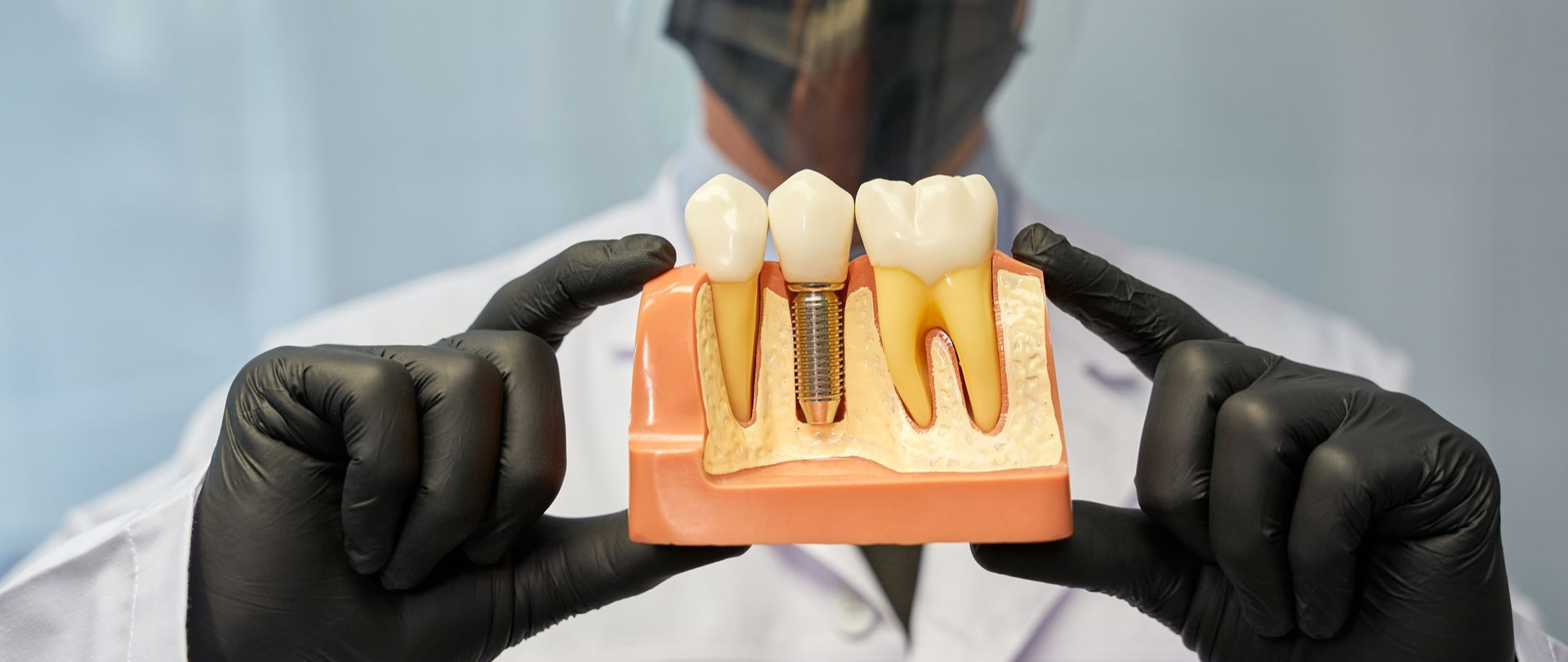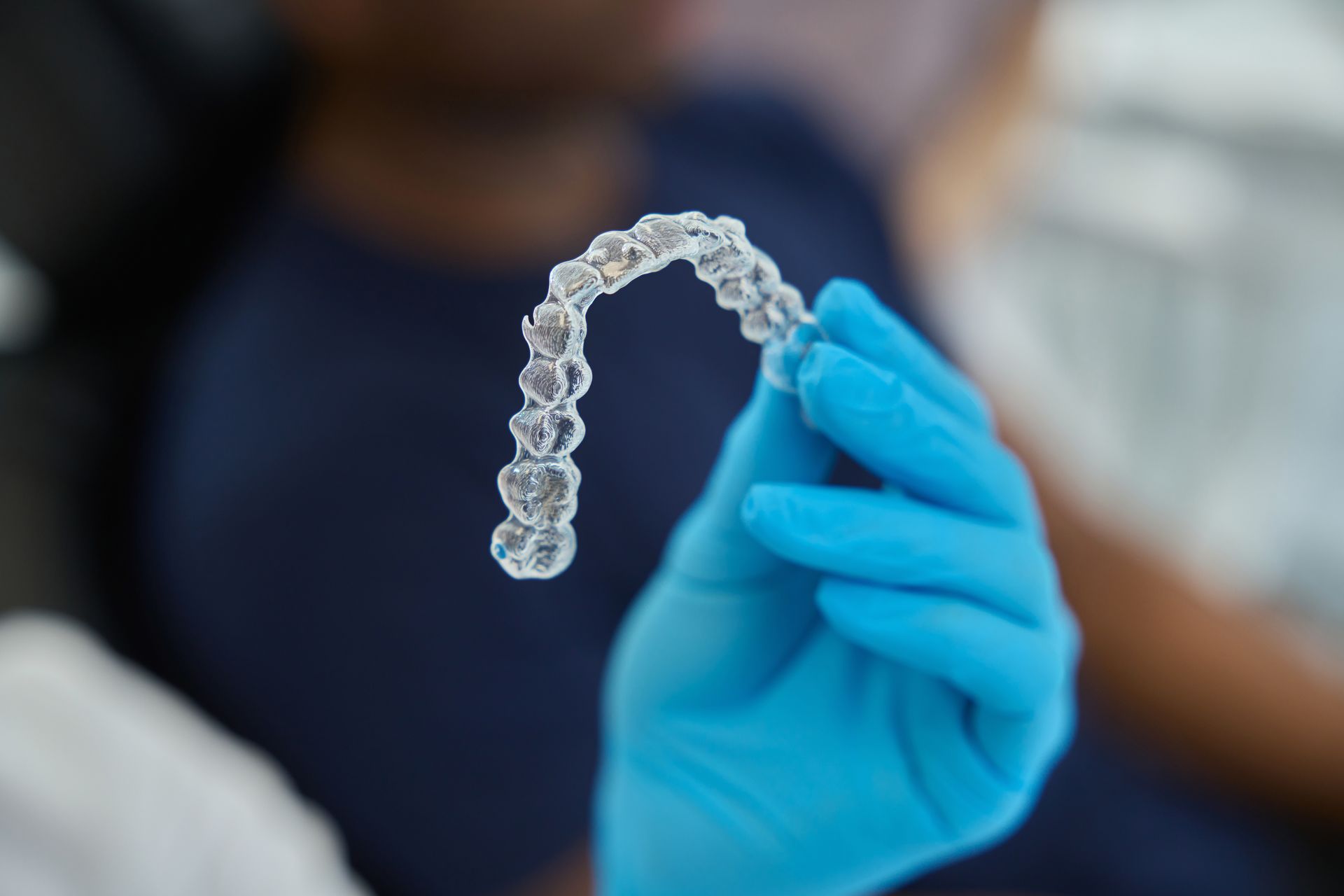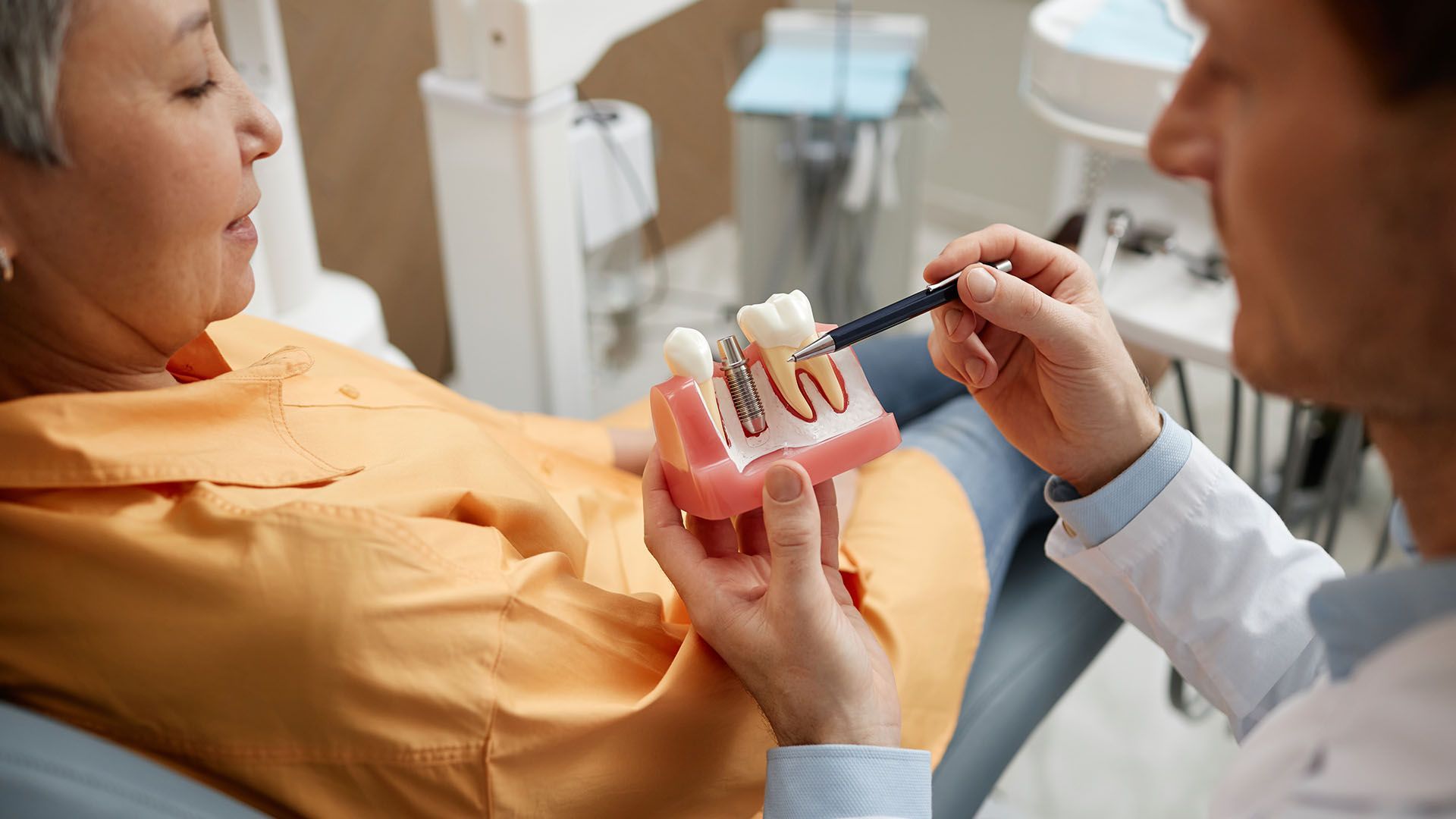Why Choose Dentures Instead of Implants? Top Benefits Explained

Written by the clinical team at Ufberg Dental, PC. We help patients compare dentures and dental implants every day, using evidence-based guidelines and clear, plain-language counseling. Our goal here is to share practical, trustworthy information so you can decide what fits your health, timeline, and budget.
If you want a non-surgical, more affordable, and faster way to replace multiple missing teeth, dentures often provide the best balance of cost, comfort, and convenience. Implants can be a great option for some people, but dentures win for patients who prefer lower upfront cost, no bone grafting, shorter recovery, and easy adjustments over time. Read on for the details.
Dentures vs. Implants at a Glance
How each option works
- Dentures are removable tooth replacements. They can replace all teeth (full dentures) or some teeth (partial dentures) using acrylic bases, flexible materials, or a metal framework.
- Dental implants are surgical titanium posts placed in the jaw to hold a crown, bridge, or denture. They're stable and help preserve bone but require enough bone and healing time.
Cost, timeline, and recovery overview
- Cost of dentures vs implants: Dentures typically have lower upfront and lifetime costs, especially for full-arch replacement. Implants carry higher fees due to surgery, parts, and follow-up.
- Timeline: Many denture cases—especially immediate dentures—can be completed within days to weeks. Implants often need months for healing and, if needed, bone grafts.
- Recovery: Dentures involve
no oral surgery for the prosthesis itself (extractions may be needed). Implants require
surgical healing and careful aftercare.
Maintenance and longevity basics
- Dentures: Expect periodic relines, adjustments, and routine cleaning. Repairs are usually simple and affordable.
- Implants: Require excellent daily hygiene, professional maintenance, and healthy gums. Components may need replacement over time.

Who Benefits Most from Dentures
Limited bone density or avoiding grafting
- If you have low bone density, wish to avoid bone grafts, or want a solution that doesn’t depend on surgery, dentures are often the smoother path.
Medical considerations and medication conflicts
- Certain medical conditions and medications can make implant surgery riskier or slower to heal. For many patients—including some smokers and people with diabetes—a non-surgical tooth replacement can be the safer, simpler choice.
Replacing multiple teeth or full arches
- When you need to replace many teeth at once, dentures offer predictable esthetics, quicker results, and lower overall treatment cost compared with placing several implants.
Key Benefits of Choosing Dentures
Lower upfront and lifetime cost
- Dentures generally cost less now and less to maintain later. This matters if you’re replacing multiple teeth or planning within a set budget.
No surgery required and shorter healing time
- Because there’s no implant surgery, you skip surgical risks, anesthesia, and lengthy healing. Most patients resume normal routines quickly.
Faster path to a complete smile (immediate dentures)
- Same-day or immediate dentures can give you teeth right after extractions, so you don’t go without a smile while healing.
Reversible and adjustable over time
- Dentures are reversible and easy to adjust. Your clinician can refine fit, reline for comfort, or repair fractures without complex procedures.
Flexible options: full, partial, and flexible partials
- Choose what fits your situation: full dentures, partial dentures, flexible partials, acrylic bases, or metal-framework partials—all tailored to your anatomy and goals.
Simple repairs, relines, and ongoing care
- Denture relines restore comfort as gums and bone change. Most repairs and tooth replacements on a denture are straightforward and affordable.
Insurance coverage and financing advantages
- Dental plans often provide better coverage for dentures than implants. Many patients also use financing to spread out costs comfortably. Learn more about our insurance options and coverage.
Comfort, Fit, and Everyday Function
Improving fit with relines, soft liners, and design tweaks
- As your mouth changes, a reline reshapes the inner surface for a snug fit. Soft liners can cushion tender areas, and small design tweaks improve comfort.
Speech and chewing adaptation tips
- Expect a short adaptation period. Read aloud, practice common words, and start with softer foods, moving to varied textures as confidence grows.
Stability strategies and adhesive best practices
- Modern denture adhesives can improve stability and comfort. Use thin, even layers and follow cleaning directions to keep tissues healthy.
When Implants May Still Be the Better Choice
Jawbone preservation and bite force needs
- Implants stimulate bone and can deliver higher bite force. If bone maintenance and maximum chewing strength are top priorities, dental implants may suit you.
Single-tooth replacement and high-demand cases
- For a single missing tooth or specific functional demands, an implant crown can be a precise, long-term solution that protects neighboring teeth.
Long-term maintenance preferences and budget readiness
- If you prefer a fixed, non-removable option and are comfortable with surgery, longer timelines, and higher costs, implants are worth considering.
How to Decide: A Practical Patient Checklist
Health, lifestyle, and time horizon
- Think about your overall health, comfort with surgery, and how quickly you want a complete smile. Dentures deliver speed; implants require patience.
Budget, insurance, and financing
- Compare the cost of dentures vs implants, your insurance coverage, and available financing. Choose the path that fits your financial plan now and later.
Aesthetic priorities and functional goals
- Rank what matters most: appearance, removability, chewing power, maintenance, and future flexibility. Dentures excel in affordability, adaptability, and quick turnaround dentistry.
What to Expect from Denture Treatment
Consultation, records, and impressions
- We review your goals, medical history, and exam findings. Impressions, measurements, and bite records guide the design for comfort, fit, and esthetics.
Try-in, fit verification, and esthetic approval
- A try-in lets you preview tooth shape, shade, and position. We verify speech and bite and make adjustments before final processing.
Delivery, follow-up adjustments, and care routines
- At delivery, we check pressure points, polish edges, and review cleaning and maintenance. Expect follow-up adjustments as you adapt.
Realistic Outcomes and Case Snapshots
Full arch denture transformation highlights
- Full dentures can restore smile esthetics and speech clarity quickly. Many patients appreciate the confidence boost and simple daily care. View examples in our smile gallery to see real transformations.
Partial denture solution for multiple missing teeth
- Partial dentures blend with remaining teeth to fill gaps, support chewing, and protect your bite—often without crowns or surgery.
Next Steps
Book a consultation and what to bring
- Bring your questions, a list of medications, and any recent X-rays. If you have insurance, bring your card so we can outline coverage for removable tooth replacement. Ready to get started? Contact us to schedule your consultation.
Preparing questions and evaluating your options
Ask about:
- Which
denture type (full, partial, flexible) fits your needs
- Whether
immediate dentures are an option
- Expected
timeline,
follow-up, and
maintenance
- How to compare
long-term costs with implants
- Tips for adhesives, relines, and keeping the fit comfortable
Learn more about our comprehensive dental services and explore our advanced technology that ensures precise, comfortable treatment. You can also read patient testimonials to hear about real experiences with denture treatment.
If you're experiencing a dental emergency and need immediate care, visit our
dental emergencies
page for guidance and contact information.
Frequently Asked Questions
Are dentures better than implants?
It depends on your needs. Dentures are usually best when you want a non-surgical, faster, and more affordable way to replace several teeth. Implants may be better for bone preservation and maximum chewing power.
How much do dentures cost compared to implants?
Dentures typically cost less upfront and over time. Implants cost more because they involve surgery, parts, and a longer treatment timeline.
Do dentures require surgery?
No. Aside from possible tooth extractions, dentures themselves don’t require surgery. Implants always require a surgical procedure.
How long does it take to get dentures?
Many patients receive dentures in weeks, and immediate dentures can be placed the same day as extractions. Implants often take several months to complete.
Will dentures look natural?
Yes. Modern dentures are designed for natural tooth shape, color, and gum appearance. A try-in appointment helps fine-tune esthetics before they’re finalized.
Can I eat normally with dentures?
Yes, with a short adjustment period. Start with soft foods, cut food into smaller pieces, and increase variety as comfort improves. Adhesives can help stability.
Do dentures affect speech?
A little at first. Reading out loud and practicing common words for a few days usually restores clear speech.






